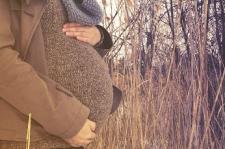Subsidised egg freezing isn’t the answer to Japan’s birth rate
By Angel Petropanagos,
New Scientist
| 06. 17. 2016
What should you do when you have a population that is shrinking and ageing amid a very low national birth rate? The government of the Japanese city of Urayasu thinks the answer is to pay for women to freeze their eggs.
Working with Juntendo University Urayasu Hospital, the city has announced a three-year pilot project that will use public money to cover 80 per cent of the egg freezing costs for female residents aged between 25 and 34.
The aim is to boost fertility rates by facilitating delayed childbearing; the eggs will be used up to the age of 45. This is the first “social” egg freezing subsidy programme of its kind. I hope it is the last.
Egg freezing is onerous and risky for individual women. It’s also likely that the majority of those who undergo the procedure as an attempt to guard against age-related infertility won’t ever use these eggs in future attempts at pregnancy.
Those who do will have to resort to IVF, which poses additional risks and costs. Furthermore, egg freezing isn’t guaranteed to work...
Related Articles
By Katherine Long, Ben Foldy, and Lingling Wei, The Wall Street Journal | 12.13.2025
Inside a closed Los Angeles courtroom, something wasn’t right.
Clerks working for family court Judge Amy Pellman were reviewing routine surrogacy petitions when they spotted an unusual pattern: the same name, again and again.
A Chinese billionaire was seeking parental...
By Sarah A. Topol, The New York Times Magazine | 12.14.2025
The women in House 3 rarely had a chance to speak to the women in House 5, but when they did, the things they heard scared them. They didn’t actually know where House 5 was, only that it was huge...
By Courtney Withers and Daryna Zadvirna, ABC News | 12.03.2025
Same-sex couples, single people, transgender and intersex West Australians will be able to access assisted reproductive technology (ART) and surrogacy, almost a decade after reforms were first promised.
The landmark legislation, which removes the requirement for people to demonstrate medical...
By Rachel Hall, The Guardian | 11.20.2025
Couples are needlessly going through IVF because male infertility is under-researched, with the NHS too often failing to diagnose treatable causes, leading experts have said.
Poor understanding among GPs and a lack of specialists and NHS testing means male infertility...




